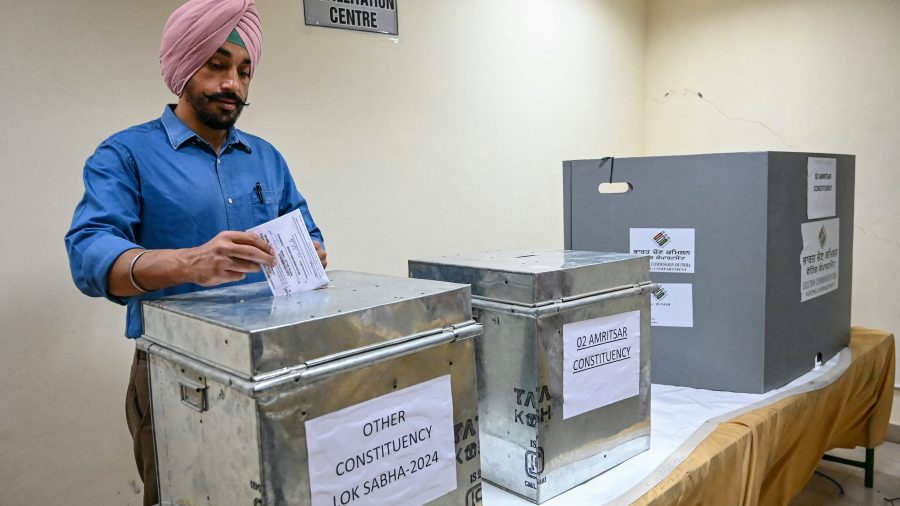The dark side of AI in India’s election

This story was produced by our colleagues at the BBC.
Sometimes it helps if politicians can be at multiple places at the same time. Enter artificial intelligence.
From a local leader appealing to multiple voters on WhatsApp, to the cloned voice of Prime Minister Narendra Modi encouraging his party candidates, or even regional parties resurrecting their popular leaders six years after their death, AI is making it all possible.
Now, parties can reach out to the voters at a tenth of the cost, compared to physically organizing big-ticket political rallies.
Divyendra Singh Jadoun of IT services company Polymaths Solutions says his revenue has gone up five times in the last six months. “We started getting a lot of requests,” he said. “Before that we used to get two to three requests in a whole year. But now, we have got like more than 250 requests.”
Good business and the ability to customize content specific to voters could be a game changer, according to Senthil Nayagam of Muonium AI. “If the data is available, can we guess if this person is married or not? We can make some estimate. What is the story we can tell to this guy?” said Senthil.
“You want to target, say, ‘hey, you are [an] unemployed youth,’ so you can say ‘okay, I can give you a government job within like three months.’ And that might inspire this guy to go and vote,” he added.
But there’s also a worrying darker side: the unchecked use of deepfakes to disrupt law and order, create friction among communities and spark confusion in voters.
In April, Bollywood actors Ranveer Singh and Aamir Khan filed police complaints after videos went viral of them appearing to criticize Prime Minister Modi. The stars said the videos were deepfakes, made without their consent.
Divyendra tells me he’s had to turn down hundreds of such requests ahead of elections. “We get more unethical requests, and we have been getting this for last three years now,” he said.
“Currently, the issue is this technology is open source, we cannot ban it. Now, if they want to create unethical stuff, they don’t need us because the technology has become so much accessible that even a 10-year-old kid can do this kind of thing,” Divyendra added.
Bhairav Shankar, CEO of Avantari, said that government regulation is coming, and is warranted. Bhairav has worked on several AI political campaigns and spells out an ideal scenario. “It should be done at the point of dissemination and the point of creation,” Bhairav said. “Servers are the ones that create this deepfake tech and applications are the ones that circulate it. So, if we can stop it at these two levels, then I think the industry will automatically have to set itself right.”
Nearly half of India’s population has access to a smartphone and information is in the palm of nearly every hand. But in an age of misinformation, and now with AI in the mix, it’s also easy for the lines to blur between the real and the unreal.
The future of this podcast starts with you.
Every day, the “Marketplace Tech” team demystifies the digital economy with stories that explore more than just Big Tech. We’re committed to covering topics that matter to you and the world around us, diving deep into how technology intersects with climate change, inequity, and disinformation.
As part of a nonprofit newsroom, we’re counting on listeners like you to keep this public service paywall-free and available to all.
Support “Marketplace Tech” in any amount today and become a partner in our mission.












